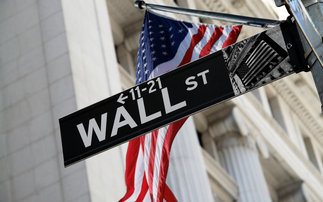Retail investors have significantly upped their exposure to private equity investment trusts over the past 12 months in search of bargains, causing discounts to narrow considerably during 2019.
HarbourVest Global Private Equity (HVPE) said retail exposure within its pool of clients has almost doubled over the past year, climbing to 5.3% of its share register on 30 June 2019 compared to 2.8% on the same date last year.
Pantheon International Participations (PIN) said it had also seen its retail shareholder base steadily grow over recent years to now stand at around 10% of its share register.
Data from platforms show this has been a broad-based trend; AJ Bell's Youinvest reported a 45% increase in the number of holders of HVPE from 31 December 2018 to 22 July this year, while NB Private Equity (NBPE) had seen an 84.6% increase over the same timeframe.
James Anderson: Investors need more access to private companies
The Share Centre said the number of purchases of both HVPE and PIN by its clients had doubled between H1 2018 to H1 2019, while Princess Private Equity saw a 75% increase.
Elsewhere, HVPE had moved from being interactive investor's 128th most-bought investment trust in January 2019 to 67th in June 2019, and PIN moved from 94th to 73rd, while HG Capital went from 161st to 98th.
Additionally, Hargreaves Lansdown confirmed the number of investors buying HVPE had risen by around a third in 2019, with a modest increase in some of its peers.
Discount movements
At the same time, the AIC Private Equity sector's discount widened in 2018, starting the year at 15% and ending the year at 26%.
James Carthew, head of investment company research at Marten & Co, said this was the result of investors worrying over how private equity will perform during the next recession, the asset class having "fallen off a cliff" during the previous crash.
The share price of the average trust in the AIC Private Equity sector more than halved between October 2008 and March 2009,
AIC data showed. As a result, discounts reached almost 40% at the end of 2009.
"In anticipation that something might be going wrong with the economy [last year], people have been junking them," Carthew said.
He added this was "probably a mistake" and opened up an opportunity for bargain hunters to swoop. The sector's average discount has narrowed since the start of 2019 to 15%.
Why investment trusts must tread carefully when it comes to private investments
The AIC's communications director, Annabel Brodie-Smith, said private equity investment companies tend to react strongly to the markets' appetite for risk. "Consequently, they had a very tough time during the financial crisis before bouncing back," she said.
Carthew also noted that while share prices plummeted, the net asset value (NAV) held up better. The sector's NAV total loss between October 2008 and March 2009 was 12.95%.
In comparison, the MSCI AC World index declined by 12.38% in that period, according to FE data.
He also said private equity trusts' portfolios are more conservatively valued this time around, so there is every chance investors are picking up a double discount.















